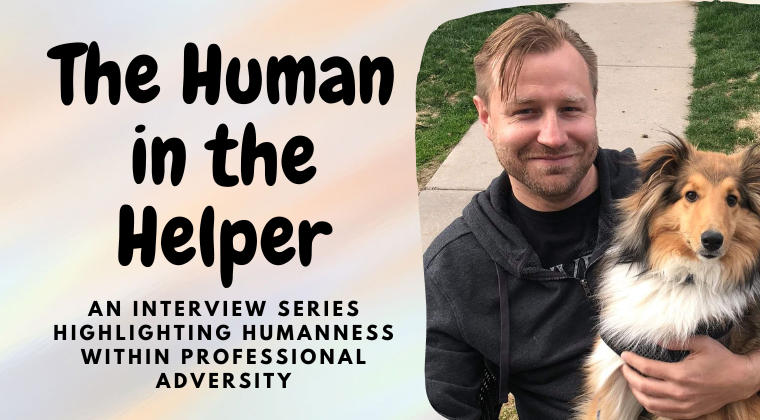Tim has a calming presence for both his clients in private practice and for his students as a dedicated professor. He’s known for giving students and supervisees grace, affirming that perfectionism isn’t the goal of their learning. Tim says this philosophy comes from his own lived experience with difficult choices, specifically decisions involving his therapy business and his home life in an effort to find balance during moments of grief and loss. “My dad had cancer and was placed on hospice. I was gone from home for three months,” he describes. Thankfully, Tim had already moved his practice to 100% telehealth months earlier when the COVID-19 pandemic had shut everything down, which allowed him to see his clients remotely from another state. “Going to work was a nice break from what was happening with my dad. It was nice to feel in control of something, to remove myself for a break and go to work.”
Although Tim was able to see clients remotely, he made the choice to refer several newer clients to colleagues, knowing he couldn’t give them his best during that difficult time. “I’m grateful for my network, to make this handoff to other specialists that could serve the clients best.” He also worked with several colleagues to take his clients for a month for bereavement after his dad’s passing. “It was really hard. I wish I’d focused on my coping and how difficult it was to see him decline. I wish I had taken off a little sooner.” Tim describes a struggle with wanting to be there for his clients while also taking care of himself. “I don’t think clients got my best at the end. Yet I tell others, including my students, that you don’t have to be a rockstar clinician every day.”
Coping during his loss involved remaining connected to his wife who had stayed at home. “I wanted to call her everyday but not use her to vent every day.” Tim has ideas for fellow therapists who are going through a significant loss. “Use your rolodex. Call a friend and vent. Don’t isolate.” He shared how calling a new friend each night helped him through, without putting too much pressure on his wife as his primary support. “Therapists are used to being the listeners so they don’t always ask for help, which can lead to burnout.”
Tim also talked about the risks of burnout coming from the loss of income when having to reduce a caseload or close business temporarily. “I wish I’d known about business insurance that would pay for when we can’t work.” He named the importance of having some money for emergencies, which echoes some of my work as a Financial Therapist. Most importantly, Tim reflected on the boundaries he needed with clients to avoid burnout. “Clients knew what was going on, but I was very careful to keep the hour focused on them.” He says this is important because he works with a lot of middle-aged clients who have significant responsibilities. When they tried to focus on Tim, he’d reassure and redirect clients by saying, “this is your hour where you don’t have to care for someone else.”
Tim’s practice is healthy and rewarding today. He and his wife are making plans with the intention of taking time off to travel each year and he continues to teach and supervisee therapists-in-training. When asked what his key takeaway has been from his experience of pausing his business in support of his dad and for grief and loss healing, he said “if you can do this, you can do anything.” His thoughts sound in alignment with post-traumatic growth, which makes sense for folks who experience such a life-changing event like this one.
Things happen to us as humans, even as we support our clients as professional helpers. Do you have a story you want to share the mental health community? Email us at croswaitecounselingpllc@gmail.com to learn more about the Human in the Helper Series!

